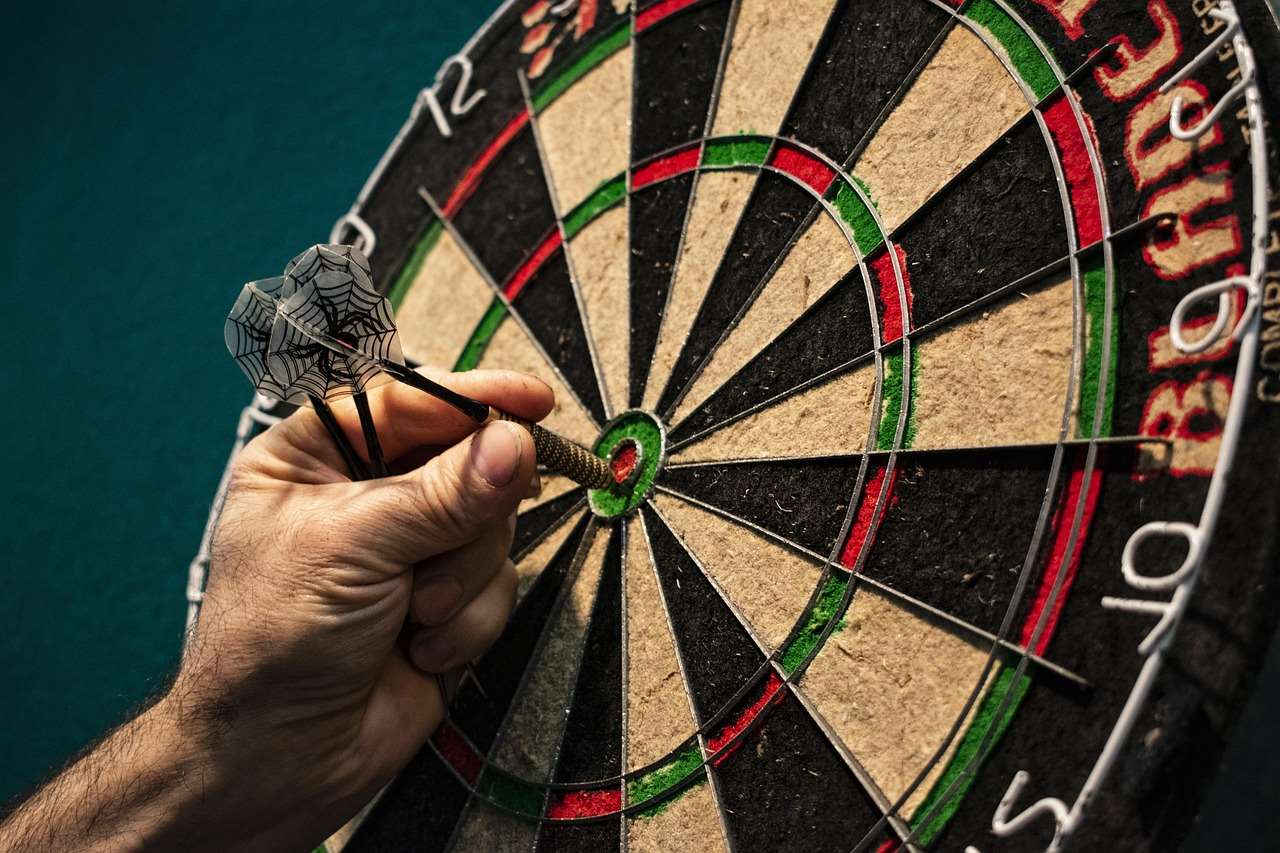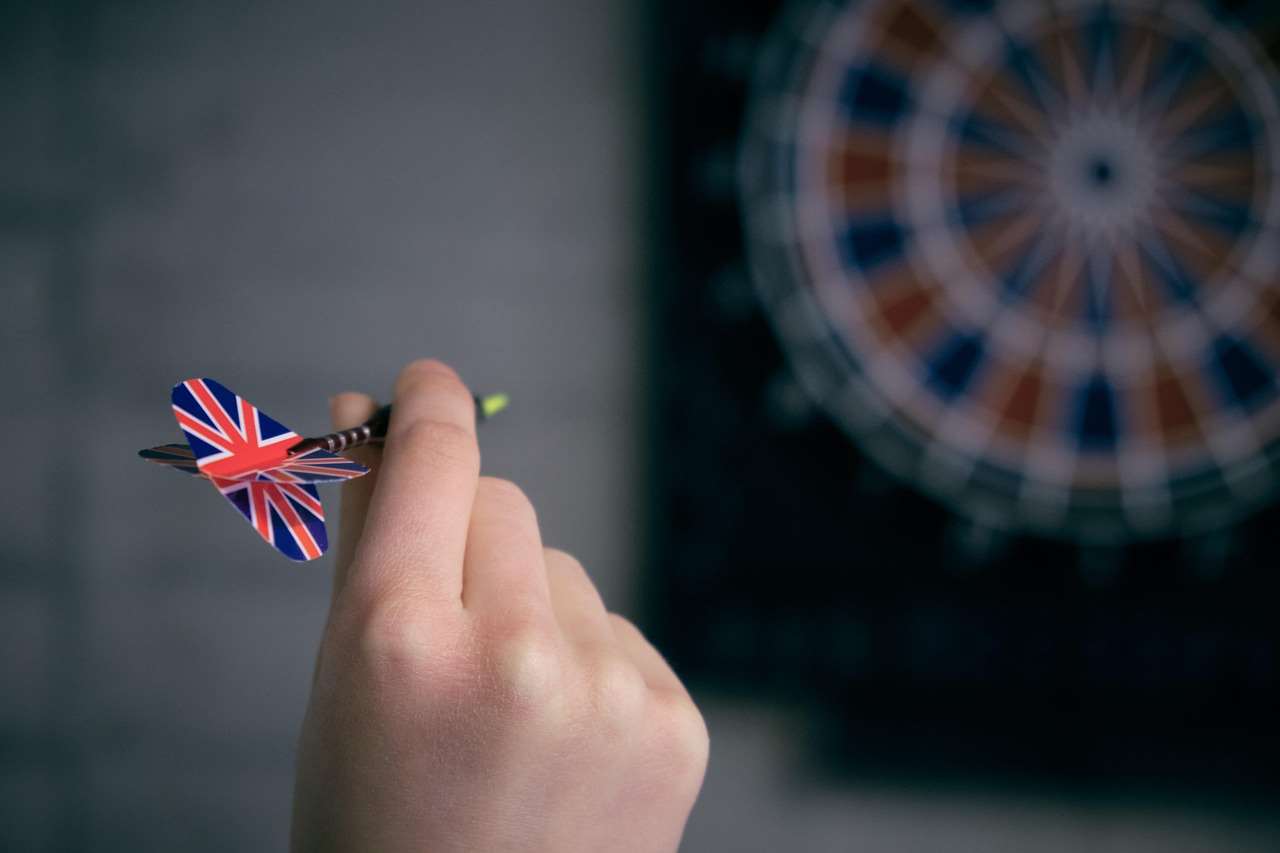Mastering team darts game time management is crucial for maintaining momentum, keeping your opponents on edge, and ultimately increasing your chances of victory; this article will delve into practical strategies for optimizing your team’s performance, minimizing downtime, and creating a winning rhythm. We’ll explore everything from pre-game planning to in-game tactics and post-match analysis, all designed to improve your team’s efficiency and enjoyment of the game.
⚠️ Still Using Pen & Paper (or a Chalkboard)?! ⚠️
Step into the future! The Dart Counter App handles all the scoring, suggests checkouts, and tracks your stats automatically. It's easier than you think!
Try the Smart Dart Counter App FREE!Ready for an upgrade? Click above!
The Foundation: Pre-Game Planning for Efficient Team Darts
Effective team darts game time management starts long before you step up to the oche. The pre-game phase is your opportunity to set the stage for a smooth and efficient performance. This involves several key areas:
1. Defining Roles and Responsibilities
Each member of your team should have a clear understanding of their role. Are you the primary scorer? The strategic planner? The morale booster? Clearly defined roles minimize confusion and overlap, leading to faster decision-making and a more streamlined approach. Consider rotating roles periodically to develop well-rounded players.
2. Establishing Communication Protocols
How will you communicate during the game? Will you use verbal cues, hand signals, or a combination of both? Establish a system that allows for quick and clear communication without disrupting the flow of the game. For instance, a simple hand gesture could indicate a preferred checkout strategy. Efficient communication contributes significantly to good time management. Consider exploring Darts Variants Fun Games, where different games may require new communication strategies.
3. Practicing Strategic Checkouts
Don’t wait until you’re under pressure to figure out your checkout strategy. Practice common checkouts as a team, identifying the most efficient routes and ensuring that everyone is on the same page. This will eliminate hesitation and wasted time when it matters most.
4. Familiarizing Yourselves with the Rules
It sounds basic, but a thorough understanding of the rules is essential for avoiding unnecessary delays. Knowing the specific rules of the game you’re playing ensures that you don’t waste time arguing about interpretations or making illegal moves. This is doubly important when considering the historical dart game variations which may have subtle rule differences.

In-Game Strategies for Optimal Team Darts Game Time Management
Once the game begins, your pre-game preparations will be put to the test. Here are some in-game strategies to help you maintain a steady pace and manage your time effectively:
1. The Importance of Quick Rotations
Minimize the time spent between turns. Have the next player ready to step up to the oche as soon as the previous player has finished their darts. This reduces downtime and keeps the momentum going. Encourage players to have their darts ready and their strategy in mind before it’s their turn.
2. Streamlining Scoring and Calculation
Designate a scorer who is responsible for accurately and efficiently tracking the score. Utilize a scoring app or a whiteboard to make the score visible to everyone. The scorer can also pre-calculate potential checkouts based on the current score, saving valuable time when a player is nearing the end of a leg. Fast and accurate scoring directly impacts team darts game time management.
3. Strategic Timeouts and Communication
If allowed, use timeouts strategically to discuss strategy, regroup after a setback, or simply give your team a mental break. During timeouts, focus on clear and concise communication. Avoid lengthy discussions and prioritize actionable advice.
4. Adapting to Your Opponents’ Pace
Pay attention to your opponents’ pace of play. If they are playing slowly, try to maintain your own rhythm and avoid getting bogged down. If they are playing quickly, be prepared to match their pace or find ways to subtly slow them down without being unsportsmanlike.
5. Dealing with Distractions Efficiently
Distractions are inevitable, whether it’s noise from the crowd or a malfunctioning dartboard. Develop a plan for dealing with distractions quickly and efficiently. This might involve designating a team member to address the issue or having a pre-arranged signal for calling a brief pause.
Advanced Tactics for Mastering Time in Darts
Beyond the basic strategies, there are more advanced tactics that can help you gain a competitive edge through better team darts game time management:
1. Using the Clock to Your Advantage
In some situations, you can use the clock to your advantage. For example, if you are ahead in a leg and your opponent is playing slowly, you might subtly increase your own pace to put pressure on them. Conversely, if you are behind, you might take a bit more time to compose yourself and plan your next move.
2. Psychology of Pace
The pace of your play can have a psychological impact on your opponents. A consistently quick and decisive pace can create a sense of pressure and urgency, while a slower, more deliberate pace can disrupt their rhythm and make them feel uneasy. Experiment with different paces to see what works best against different opponents.

3. Optimizing Practice Sessions
Use your practice sessions to simulate game-day conditions. Practice your rotations, your scoring system, and your communication protocols. The more comfortable you are with these processes, the more efficiently you will perform during a real game. Regular practice sessions can help to refine your team’s strategy and improve team darts game time management skills.
4. Scouting Your Opponents
If possible, scout your opponents beforehand to learn about their playing style and tendencies. Do they tend to play quickly or slowly? What are their preferred checkouts? This information can help you develop a strategy to counter their strengths and exploit their weaknesses. Consider whether they are aware of the obscure dartboard games list and how that affects their strategies.
Addressing Common Time-Wasting Pitfalls
Even with the best planning, certain pitfalls can derail your team darts game time management efforts. Here’s how to avoid them:
1. Avoiding Excessive Analysis Paralysis
While strategy is important, overthinking can be detrimental. Encourage your team to trust their instincts and avoid getting bogged down in endless analysis. Make quick decisions and move on. Remind players that there are more forgotten pub dart games that require quick decision making.
2. Curbing Unnecessary Debates
Disagreements are inevitable, but they shouldn’t disrupt the flow of the game. Establish a clear process for resolving disputes quickly and fairly. This might involve consulting the rulebook or having a designated team captain who makes the final decision.
3. Minimizing Dartboard Maintenance Delays
Ensure that your dartboard is in good condition before the game. Have spare darts and flights on hand in case of breakage. Learn how to quickly repair minor damage to the dartboard to avoid lengthy delays. Regular dartboard maintenance contributes to efficient time management.

Post-Match Analysis: Learning from Every Game
The learning doesn’t stop when the game ends. A post-match analysis is essential for identifying areas for improvement and refining your team darts game time management strategies:
1. Reviewing the Game Recording
If possible, record your games and review them afterwards. This allows you to identify patterns in your play, spot areas where you wasted time, and assess the effectiveness of your strategies.
2. Gathering Feedback from Team Members
Encourage team members to provide honest feedback about their own performance and the performance of the team as a whole. What went well? What could have been done better? How can you improve your team darts game time management in the future?
3. Identifying Areas for Improvement
Based on your review and feedback, identify specific areas where you can improve your time management skills. This might involve practicing specific checkouts, refining your communication protocols, or developing a better plan for dealing with distractions. This should be a collaborative process.

The Mental Game and Time Management in Team Darts
The mental aspect of darts plays a significant role in team darts game time management. A focused and confident team will naturally be more efficient.
1. Building Confidence and Focus
Encourage a positive and supportive team environment. Confidence is contagious, and a team that believes in itself will be more likely to perform well under pressure. Practice mindfulness techniques to improve focus and concentration. A focused team wastes less time on distractions.
2. Managing Pressure Situations
Develop strategies for managing pressure situations. This might involve deep breathing exercises, visualization techniques, or simply reminding yourself to focus on the present moment. It’s important to remember that even the best players make mistakes. The key is to learn from those mistakes and move on.
3. Visualizing Success
Encourage your team members to visualize success. Imagine themselves throwing consistent darts, making key checkouts, and working together seamlessly. Visualizing success can boost confidence and improve performance, contributing to better overall team darts game time management.

Final Thoughts on Team Darts Game Time Management
Effective team darts game time management is a skill that requires planning, practice, and a commitment to continuous improvement. By implementing the strategies outlined in this article, you can optimize your team’s performance, minimize downtime, and increase your chances of success. Remember that it’s a team effort, and everyone has a role to play in managing time effectively.
So, take these tips, put them into practice, and watch your team’s efficiency soar. Good luck and happy darting!
Ready to take your darts game to the next level? Visit our website to explore a wide range of dart equipment, training resources, and expert tips. Start improving your skills today!
Hi, I’m Dieter, and I created Dartcounter (Dartcounterapp.com). My motivation wasn’t being a darts expert – quite the opposite! When I first started playing, I loved the game but found keeping accurate scores and tracking stats difficult and distracting.
I figured I couldn’t be the only one struggling with this. So, I decided to build a solution: an easy-to-use application that everyone, no matter their experience level, could use to manage scoring effortlessly.
My goal for Dartcounter was simple: let the app handle the numbers – the scoring, the averages, the stats, even checkout suggestions – so players could focus purely on their throw and enjoying the game. It began as a way to solve my own beginner’s problem, and I’m thrilled it has grown into a helpful tool for the wider darts community.